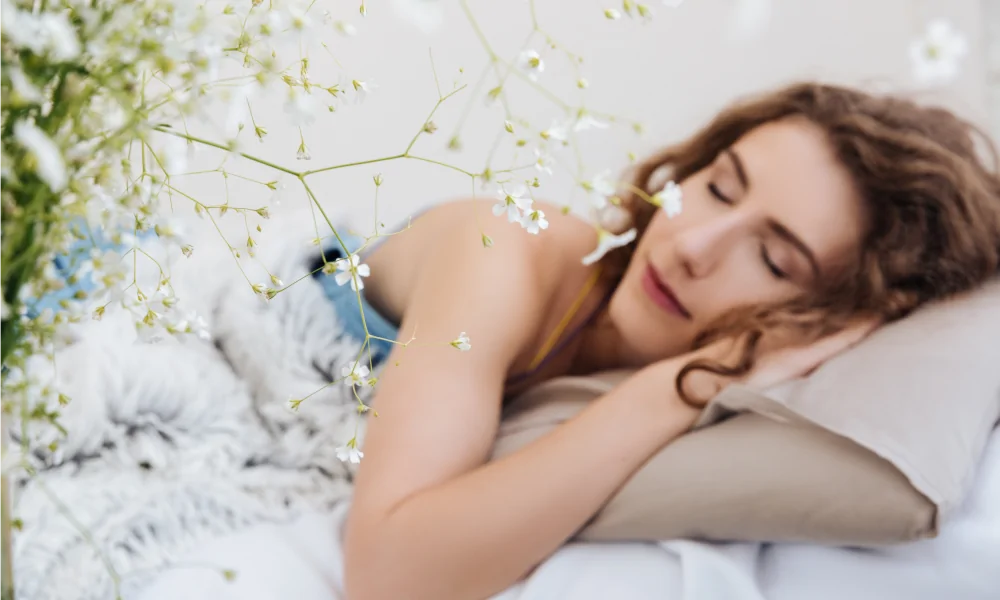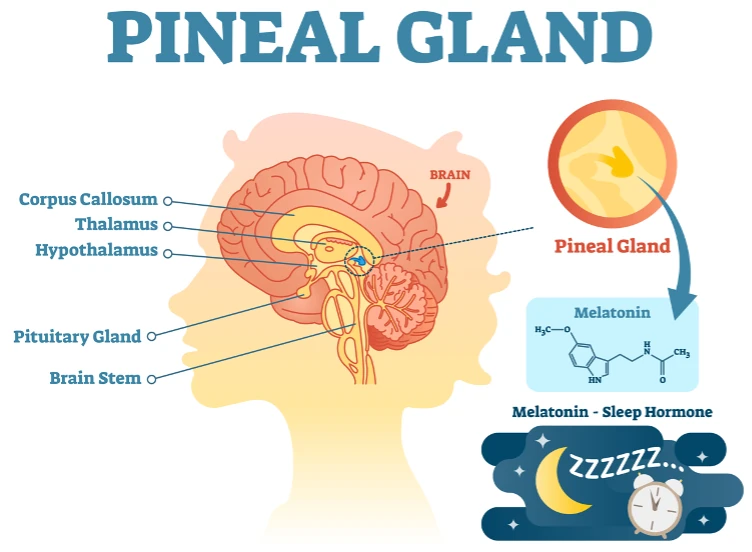The concept of ‘beauty sleep’ has captured the imagination of people across cultures for centuries. The belief that a set number of hours of sleep can enhance one’s physical appearance and promote a youthful, radiant look has been common throughout ancient folklore and modern beauty trends. However, beyond the storytelling and anecdotal evidence, the question remains: Does the scientific evidence support the existence of beauty sleep? In this comprehensive article, we will discuss the relationship between sleep and physical appearance, separating fact from fiction and the biological processes behind the potential appearance-enhancing benefits of adequate sleep.
What is beauty sleep?
The term “beauty sleep” is a colloquial phrase that refers to the belief that obtaining sufficient sleep can enhance one’s physical appearance, particularly regarding skin health and a more youthful, vibrant look. It is commonly associated with concerns such as puffy eyes, dark circles under the eyes, and the formation of fine lines and wrinkles, which are commonly believed to result from inadequate sleep.
In many cultures, various beauty routines and rituals have been developed around optimising sleep for improved skin health and a more radiant complexion. From ancient practices like sleep masks and specialised pillowcases to modern-day skincare regimens designed to be applied before bedtime, the pursuit of beauty sleep has long been a cornerstone of many beauty traditions and philosophies.
The science of sleep and appearance
While the notion of beauty sleep may have roots in folklore and cultural beliefs, modern scientific research has revealed a wealth of evidence that supports the profound impact of sleep on our physical appearance, particularly skin health.
Sleep plays a crucial role in maintaining the health and vitality of our skin, the body’s largest organ. During sleep, our skin undergoes several restorative processes that contribute to its appearance and well-being. One of the most notable processes is the production of collagen, a protein responsible for skin elasticity, firmness, and youthful radiance. Adequate sleep facilitates the synthesis of new collagen, helping reduce the appearance of fine lines and wrinkles while promoting skin elasticity and suppleness. Conversely, sleep deprivation has been linked to decreased collagen production, potentially accelerating ageing and contributing to a dull, lacklustre complexion.
Furthermore, sleep plays a vital role in cell repair and renewal, a process that is essential for maintaining a skin tone and a radiant complexion. During the deeper stages of sleep, our bodies engage in complex cellular regeneration processes, allowing damaged or ageing cells to be replaced with new, healthy ones. This cellular turnover helps to minimise the appearance of blemishes, uneven pigmentation, and other skin imperfections, ultimately promoting a more uniform and youthful-looking complexion.
Sleep deprivation can disrupt these essential cellular processes, negatively affecting our skin’s appearance. Lack of sleep can exacerbate inflammation, a key contributor to various skin concerns, including acne breakouts, redness, and accelerated ageing. Sleep deprivation can also disrupt the body’s natural hydration levels, leading to dry, dull-looking skin more prone to forming fine lines and wrinkles.
Beyond skin health, sleep plays a significant role in our appearance, including hair growth and body weight. Adequate sleep supports healthy hair growth cycles by regulating hormones and facilitating cellular processes. Furthermore, sleep plays a crucial role in regulating hormones responsible for appetite and metabolism, helping to maintain a healthy weight and overall body composition and contributing to a more youthful and vibrant appearance.
The importance of overall sleep hygiene
While beauty sleep emphasises the number of hours slept, true beauty benefits stem from healthy sleep habits and routines. Establishing a consistent sleep schedule, developing a relaxing bedtime routine, and creating a sleep-conducive environment are all crucial components of good sleep hygiene that can positively impact our appearance and overall well-being.
Maintaining a consistent sleep schedule is essential for regulating the body’s internal clock, or circadian rhythm, which plays a vital role in various physiological processes, including skin health and cellular regeneration. By going to bed and waking up at roughly the same time each day, individuals can optimise their body’s natural sleep-wake cycles, promoting more refreshing sleep. Developing a relaxing bedtime routine can signal the body that it is time to wind down and prepare for sleep. Activities such as taking a warm bath, practising gentle stretching or yoga, and incorporating relaxation techniques like deep breathing exercises or meditation can promote a sense of calm and tranquillity, reducing stress levels and facilitating a more restful sleep.
Creating a sleep-conducive environment is also crucial for achieving high-quality sleep. This may involve minimising external distractions like noise and light pollution, maintaining a relaxed and comfortable room temperature, and investing in a supportive mattress and pillows that promote proper spinal alignment and comfort throughout the night.
Stress is another significant factor that can disrupt sleep patterns and negatively impact sleep quality and quantity. Chronic stress has been linked to a variety of sleep disturbances, including insomnia and restless sleep. By implementing stress management techniques, such as mindfulness practices, regular exercise, and prioritising self-care, individuals can improve their overall sleep hygiene and, consequently, their appearance.
Is beauty sleep real? The verdict
While no magic number of hours constitutes beauty sleep, prioritising good sleep hygiene and getting sufficient, high-quality sleep can positively impact our skin and overall appearance. We can achieve a more radiant, youthful, and healthy-looking complexion by allowing our bodies to fully rest and engage in crucial restorative processes, such as collagen production, cell repair and renewal, and hormonal regulation.
However, it is important to note that individual sleep needs can vary, and the optimal amount of sleep required for optimal appearance and health may differ from person to person. Factors such as age, lifestyle, and overall health status can influence an individual’s sleep requirements, and it is essential to listen to your body’s cues and strive for the amount of sleep that leaves you feeling refreshed and energised.
Are you struggling to get your beauty sleep?
Beyond the aesthetic benefits, prioritising sleep is essential for overall physical and mental well-being. Chronic sleep deprivation has been linked to numerous health issues, including increased risk of chronic diseases, impaired cognitive function, decreased productivity, and a compromised immune system. Therefore, addressing any underlying sleep disorders or challenges hindering your ability to get the restorative sleep your body needs is crucial.
Conditions such as insomnia, sleep apnoea, and restless leg syndrome can significantly disrupt sleep quality and quantity, leading to a vicious cycle of fatigue, stress, and potential negative impacts on appearance. If you suspect that you may be suffering from a sleep disorder, it is imperative to seek professional medical advice and undergo proper evaluation and treatment.
If you struggle to get the beauty sleep you deserve, it’s time to take action and prioritise your sleep health. Begin by implementing simple yet effective sleep hygiene practices, such as establishing a consistent bedtime routine, creating a sleep-friendly environment, and limiting exposure to blue light from electronic devices before bed. Consider exploring additional resources on sleep hygiene, such as online guides and mobile applications, or seek guidance from a sleep specialist.
As a renowned sleep psychiatrist, I offer consultations for those facing sleep difficulties and alternatively those who are looking to harness the benefits of sleep to its full extent. In some cases, your sleep can also be affected by an underlying health disorder and may require further specialist input alongside sleep advice. If you suspect this may be the case, please do not hesitate to contact me for further information on how to best take charge of your sleep and health.










